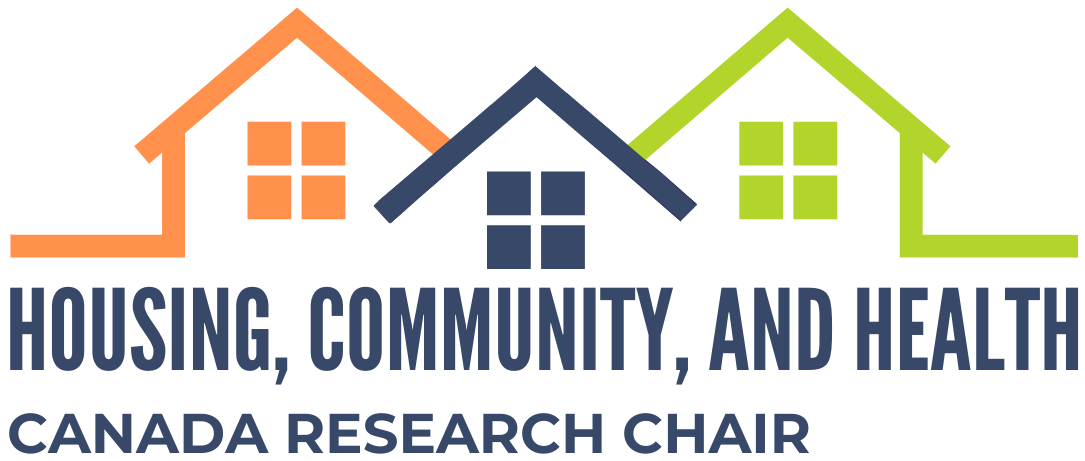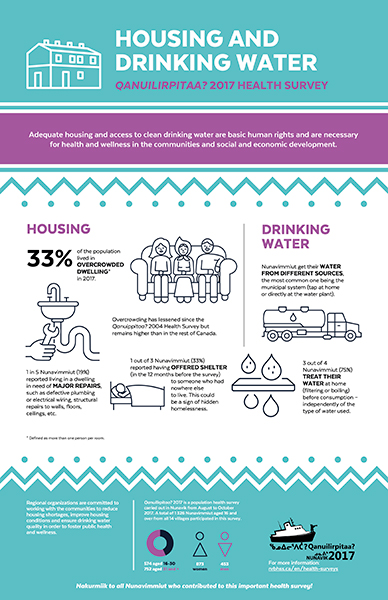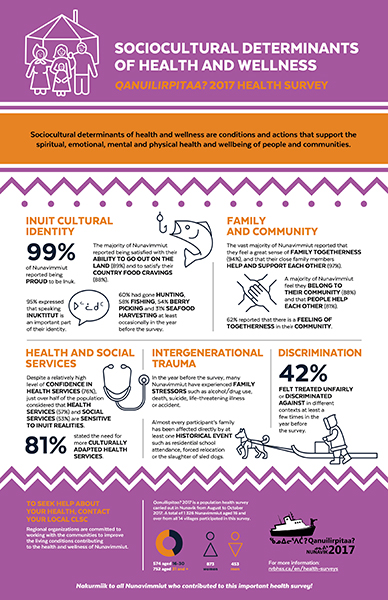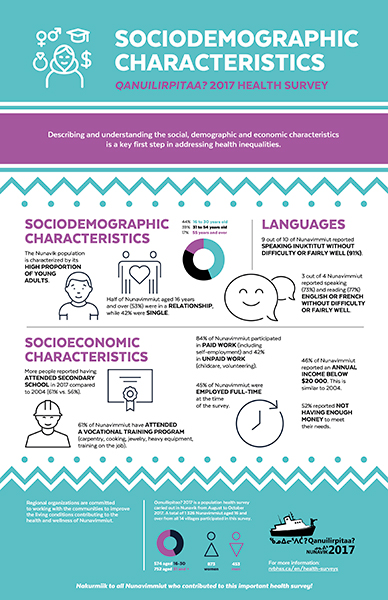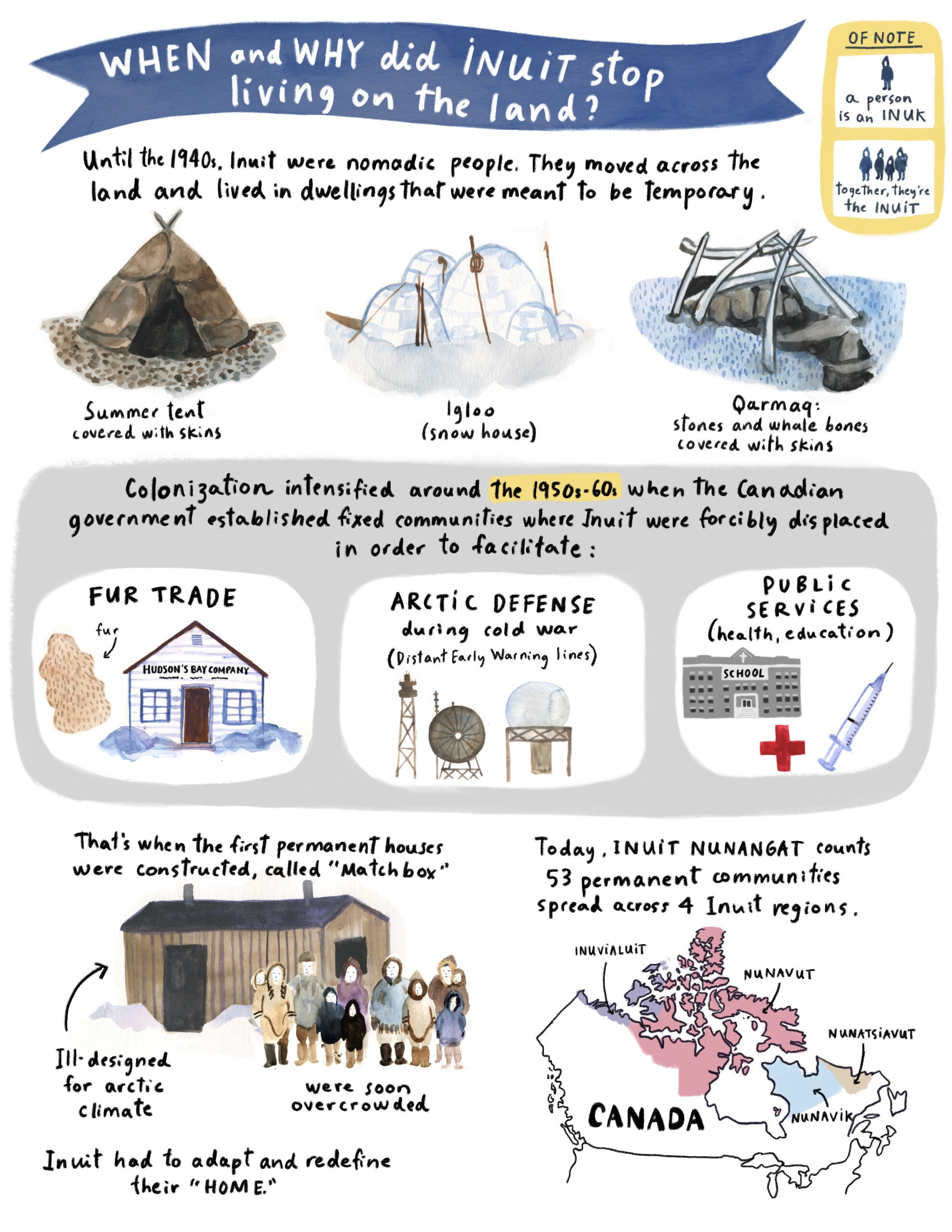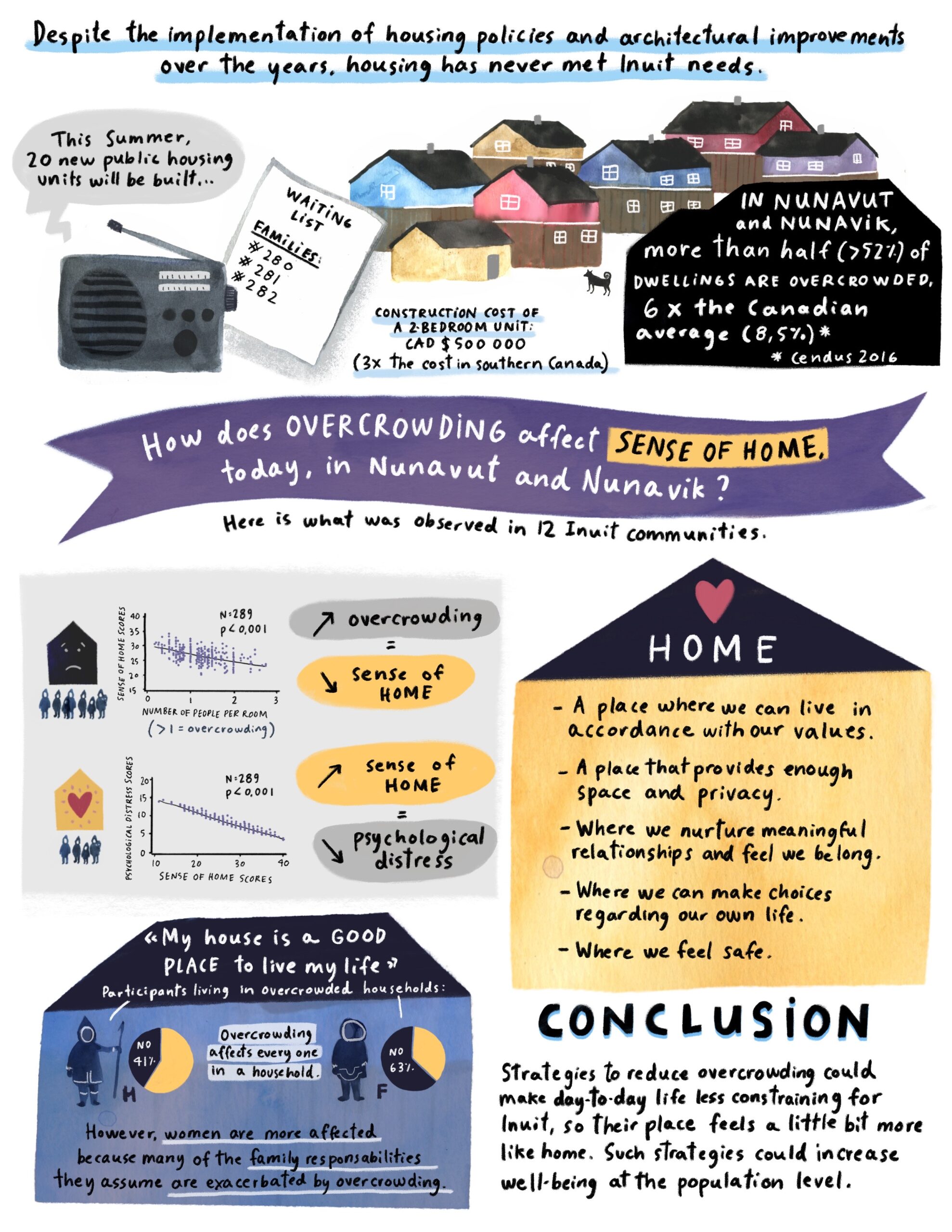Food Security & Housing
Do community-based food security interventions influence use of community services, food security, social integration and health among new users?

In Canada, hunger jeopardizes the health and well-being of one out of eight households. Food bank donations are a well-known attempt to resolve the problem, but not everyone agrees on their benefit. Some feel they undermine the movement to adopt policies to fight against poverty, while others see them rather as a bridge to additional community services that help people pull through. Who is right?
The aim of this study is to estimate the long-term effects of food donation programs on food insecurity, social integration, and health, as well as to identify the conditions that facilitate the transition from food donation programs to capacity-building programs among new users. The study will focus on four regions in Québec: Montréal, Estrie, Lanaudière, and Mauricie-Centre-du-Québec.
To investigate, our team will conduct a quantitative study of 1,800 new users of 180 community organizations offering food donations. We will also conduct qualitative interviews with leaders from these organizations as well as around 40 users to improve our understanding of the various pathways followed by food donation program users.
This project incorporates an integrated knowledge translation (iKT) approach to ensure that evidence produced concerning the role and value of food donation can be used to adapt practices to the strategies households affected by food insecurity use to feed themselves, equip and train intervention workers, and inform decision-makers at the local, regional, and national levels.
Food Needs and Habits of Food Insecure People in Montreal Neighbourhoods
Food insecurity (FI) in Montreal is a major public health problem affecting approximately 250,000 Montrealers. FI occurs when individuals and households do not have enough money to adequately or sufficiently feed themselves. The impacts of FI on well-being and physical and mental health can be serious and, in many cases, are being magnified as a result of measures to limit the spread of COVID-19.
This project will analyze the dietary and food supply patterns of low-income households according to neighborhood-level access to food-related resources (markets, food security organizations, other initiatives to improve access to healthy food) in four neighborhoods.
Our mixed-methods approach includes:
- Preliminary research: Map food resources in four underprivileged areas in Montreal.
- Quantitative research: Assess the dietary habits and access to food resources of 800 low-income households stratified by the presence or absence of food security initiatives
- Qualitative research: Strengthen our understanding of specific needs and use of food security initiatives among a sub-sample of households, selected according to their food insecurity status.
- Qualitative research: Conduct focus groups with community stakeholders to document food security innovations implemented since the beginning of the COVID-19 health crisis.
- Support knowledge translation and exchange to improve local and regional programs and practices.
Partners: Centre de recherche en santé publique (CReSP) | CIUSSS du Centre-Sud-de-l’Île-de-Montréal (CCSMTL)
Funding: Direction régionale de santé publique de Montréal (DRSPM – Montréal regional health authority)
First Nations & Inuit Health Surveys
Qanuilirpitaa? 2017 Nunavik Inuit Health Survey
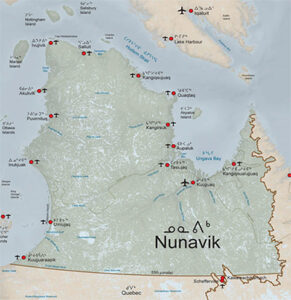
Qanuilirpitaa? (How are we now?) This is the question the Nunavik region has sought to answer with the 2017 Nunavik Health Survey. This survey, now complete, followed-up with participants of the 2004 Nunavik health survey, and invited additional Nunavimmiut aged 16 years and older to participate. The survey documents physical and mental health outcomes, as well as the social and cultural factors associated with these outcomes. One new aspect of the survey was a focus on community conditions influencing health and well-being in each of 14 Nunavik communities. Professor Riva has been the scientific co-lead for the community component of the survey with her colleague, Professor Christopher Fletcher from Université Laval.
The community component has aimed to:
- Define what a healthy community is from an Inuit point of view.
- Find ways to describe and measure community health so that changes, for better or worse, can be understood and actions taken.
- Provide indicators of community conditions that are meaningful and useful to the communities of Nunavik.
Knowledge generated from the community component of the Qanuilirpitaa? 2017 survey informs local and regional actions for community mobilization and development.
Funding: ArcticNet - a Network of Centres of Excellence of Canada | Nunavik Regional Board of Health and Social Services (NRBHSS) | Institut national de santé publique du Quebec
--- View the full results of Qanuilirpitaa? 2017 here ---
Selected results below. Click images to expand:
Food, Environment, Health, and Nutrition of First Nations Children and Youth (FEHNCY)
 FEHNCY is a research study that will look at the nutrition, health, and environment of First Nations children and youth aged 3-19 years across Canada in communities through partnerships and community participation.
FEHNCY is a research study that will look at the nutrition, health, and environment of First Nations children and youth aged 3-19 years across Canada in communities through partnerships and community participation.
The results from the study will inform government policy and community program recommendations with the goal of improving the health of First Nations children. The study will contribute to capacity building within First Nations communities and Assembly of First Nations (AFN) regions. Prof. Riva is a co-PI on FEHNCY and leads the research on the relationship between housing conditions and health.
Housing
Community-led housing in the Canadian North
Mobilizing the development of supportive housing plans through knowledge sharing and engagement in the NWT and Nunavut
Despite the growing body of research that documents factors contributing to homelessness and quantifies rates of core housing need, the northern housing crisis continues to deepen. Northern communities are thus calling for support to develop and implement supportive housing programs that directly address their needs, sustain health and healthy relationships, and promote culturally-embedded meanings attached to homemaking and individual, family, and community health.
This project integrates: 1) an examination of housing needs and relationships between housing, health, and well-being; 2) interviews aimed at defining and qualifying northern housing insecurity and homelessness; and 3) workshops designed to assess community housing needs, identify key gaps in housing- and home-related supports, and develop comprehensive, community-based supportive housing strategies in four research communities.
Prof. Riva serves as co-PI, along with Dr. Julia Christensen, on this multi-scaled, multi-sited, and interdisciplinary research program.
- Partners: NWT Housing Corporation | Hotii Ts’eeda (the NWT SPOR Support Unit) | The Institute for Circumpolar Health Research
- Funding: ArcticNet - a Network of Centres of Excellence of Canada
Improving community well-being through housing
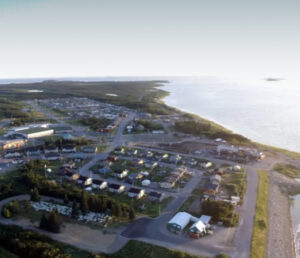
This project considers Indigenous and Northern housing, the housing requirements of those in greatest need, sustainable communities, sustainable housing, and housing supply. Its main output will be the creation of a sustainable research platform based on Indigenous/Cree research methodologies. This will facilitate understanding of housing conditions, as well as changes in housing conditions, and their relationship to individual, family, and community well-being.
The primary region of focus is the community of Eastmain, Quebec, but the project is expected to yield best practices that can be applied in other Northern Indigenous communities.
Objective: Understand the links between housing conditions and well-being in Eastmain and how culturally appropriate housing design and community planning can better foster well-being.
Prof. Riva is responsible for devising and overseeing the implementation of the research project and development of the research platform. She also provides scientific expertise and supervises the research work.
- Partners: Cree Nation of Eastmain
- Funding: Canada Mortgage and Housing Association
Housing, health, and well-being across the Arctic: Regional, local, and family perspectives
Prof. Riva and Prof. Christopher Fletcher from Université Laval lead this population health intervention research project which brings together Inuit and Western epistemologies (ways of knowing) and methodologies (ways of doing) to assess the impacts of housing conditions on individual, family, and community health and well-being in Nunavut, Nunavik, and Nunatsiavut. This project was developed and is conducted in collaboration with Inuit housing and public health organizations and academic researchers from various disciplines.
Click here to read the full post
- Partners: Nunavut Housing Corporation | Government of Nunavut Department of Health | Nunavut Tunngavik Inc. | Kativik Municipal Housing Bureau | Nunavik Regional Board of Health and Social Services | Nunavik Nutrition and Health Committee | Société d'Habitation du Québec
- Funding: Canadian Institutes of Health Research | ArcticNet - a Network of Centres of Excellence of Canada
- Updates
- Follow the project on Facebook.
- Recently published: Overcrowding and sense of home in the Canadian Arctic.
- NEW: Visual representation of results from the study. Click below to expand the images or cliquer ici pour la version française.
Housing and Indigenous peoples’ health: A knowledge synthesis of research and housing initiatives in support of practice, policy, and advocacy
This knowledge synthesis project will assess the state of the evidence linking housing conditions to health for Indigenous peoples as well as the range of housing interventions implemented in Indigenous communities in Canada and similar countries. This project is lead by Prof. Riva in collaboration with Prof. Christopher Fletcher, Suzanne Bruneau - head of the Aboriginal Health Unit at the Institut national de santé publique du Québec, decision makers from Indigenous public health and housing organizations, and national and international researchers. This project will provide decision makers and communities with information to support and inform decisions on housing and health issues in their regions.
Housing, access to health care, education, and employment among First Nations living on- and off-reserve: moving evidence to policy
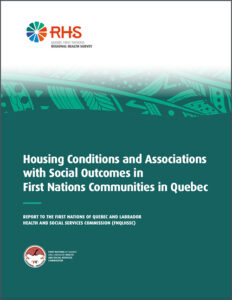 This project conducts policy-amenable research on, and translation of research about, the links between housing conditions and access to health care, education, and employment for First Nations living on reserve in the province of Quebec, and in metropolitan areas across Canada (off-reserve). It also examines indigenous housing policies implemented in Canada and elsewhere, and analyzes them for their applicability in the Montreal census metropolitan area.
This project conducts policy-amenable research on, and translation of research about, the links between housing conditions and access to health care, education, and employment for First Nations living on reserve in the province of Quebec, and in metropolitan areas across Canada (off-reserve). It also examines indigenous housing policies implemented in Canada and elsewhere, and analyzes them for their applicability in the Montreal census metropolitan area.
Energy & Health
Energy Poverty in Canada (EPIC)

In Canada, as many as 1 in 5 households are living in energy poverty (EP). In Atlantic Canada, this number rises to over 1 in 3. Households are considered to be in EP when they are unable to afford enough energy at home to meet their needs and stay warm (or cool). Evidence shows that living in EP can harm physical and mental health and that EP disproportionately affects low-income households and those in small towns and rural communities.
This project, EPIC, is led by Prof. Riva and is the first examination of EP as a determinant of health in Canada. EPIC will: 1) map EP at small geographies across Canada, document the scale of the problem, and identify which communities are most at risk and 2) tap into national survey and linked cohort data to provide evidence on the public health impacts of EP in Canada.
By providing rigorous evidence, EPIC will lay the foundation for research and action to reduce EP and improve health-related outcomes and contribute to national policy discussions at the nexus of public health, housing, and sustainability.
- Partners: Town of Bridgewater | Public Health Services, Western Zone, Nova Scotia Health Authority
- Funding: Canadian Institutes of Health Research - Healthy Cities Research Initiative
MinErAL Partnership: Mining Activities, Health and Well-Being in Indigenous Communities
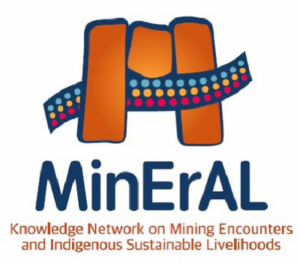 The goal of this project is to develop a comprehensive understanding of the direct and indirect impacts of mining activities on Indigenous Peoples and communities’ health and well-being, their cumulative impacts over time, and their integration in Impacts Assessments. The specific focus is on Health Impact Assessments (HIA), which pay attention to health and changes in the social-ecological determinants of health.
The goal of this project is to develop a comprehensive understanding of the direct and indirect impacts of mining activities on Indigenous Peoples and communities’ health and well-being, their cumulative impacts over time, and their integration in Impacts Assessments. The specific focus is on Health Impact Assessments (HIA), which pay attention to health and changes in the social-ecological determinants of health.
By conducting a scoping review of the scientific literature on Indigenous conceptualizations of health and well-being and associated social-ecological determinants, we will develop a conceptual framework of the direct and indirect influence of mining activities. This framework will guide a critical discourse analysis of the representations and considerations of Indigenous Peoples’ and communities’ health and well-being meanings, experiences, and priorities in Environmental Impact Assessments, Social Impact Assessments, and HIAs of mining projects.
A case study analysis of the process of HIA in, or by, Indigenous communities will guide the realization of HIA in collaboration with community members and stakeholders in two to three Indigenous communities in northern Canada, Australia, and Sweden. The main deliverable of this project will be a guide to assist Indigenous communities and organizations in conducting HIA.
- Partners: View list
- Project website
